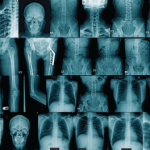Various drugs are known to cause musculoskeletal symptoms, such as arthralgias, myalgias, drug-induced lupus and serum sickness.1 In the rheumatology world, the most commonly recognized drugs that can cause musculoskeletal symptoms are hydralazine, minocycline, fluoroquinolones and, recently, the dipeptidyl peptidase 4 (DPP-4) inhibitor class of medications. Although beta blockers also have a noted side effect…








